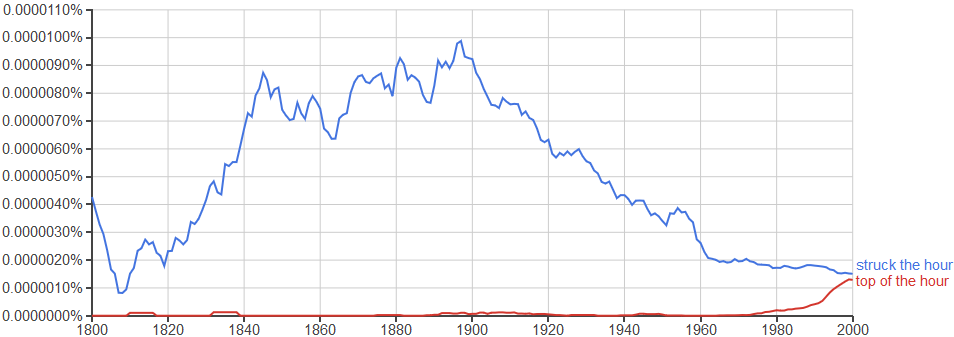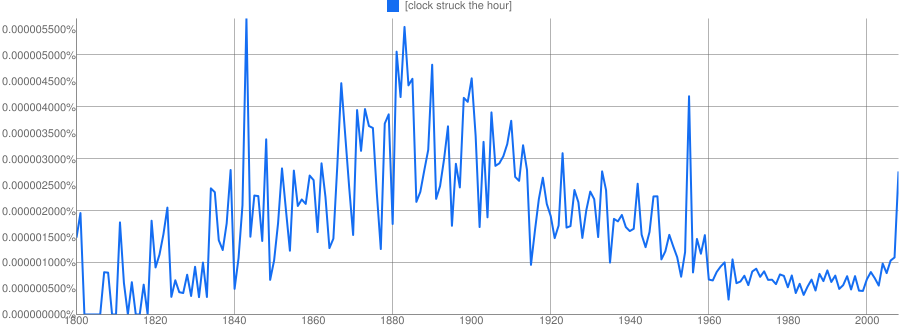To formalize some comments made to the question itself, another idiomatic phrase is at the top of the hour:
[Merriam-Webster]
US
: at the beginning of the hour (at 12:00, 1:00, 2:00, etc.)
// The program is scheduled to start at the top of the hour.
As noted by Merriam-Webster, this has primarily US usage. However, it is used elsewhere as well.
In the particular sentence in question, it could be expressed as:
X children were born since the top of the hour.
In contrast, there is also at the bottom of the hour, but this is less common and it doesn't have a similar entry in Merriam-Webster.
If we go by the printed word alone, Google's Books Ngram Viewer shows almost equal usage between at the top of the hour and struck the hour:

What's interesting is that struck the hour used to be a lot more common. For whatever reason, its general trend has been to decline. Meanwhile, the use of top of the hour has been increasing since about 1985.
If you change the corpus used, you'll see that top of the hour is actually slightly more common in the US—but that in the UK it's noticeably less common (although still in use).


